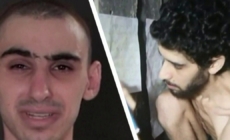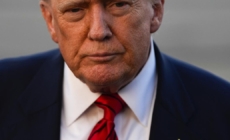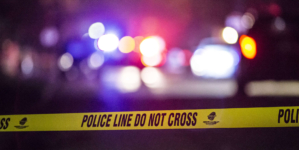-
‘The Joel Klatt Show’ Heads to Columbus Ahead of Ohio State-Texas - 5 mins ago
-
Can the U.S. deport someone who’s lived here for 30 years without an immigration hearing? - 28 mins ago
-
Eagles Quietly Add Talent at Overlooked Position - 36 mins ago
-
Joel Klatt’s 2025 College Football Rankings: Does Penn State Stay on Top? - 49 mins ago
-
Emaciated Israeli hostages seen in released propaganda videos - about 1 hour ago
-
Trump plans White House task force on security for 2028 L.A. Olympics - about 1 hour ago
-
Florida Teen Kills Parents, Calls 911 and Turns Himself in at Church: Police - about 1 hour ago
-
Actress Molly Sims posts bikini photos from relaxing family beach day - about 1 hour ago
-
California man sentenced for trying to lure victim out of his tent and fatally shooting him - about 1 hour ago
-
Browns’ Shedeur Sanders Remained Focused During Father’s Cancer Battle - 2 hours ago
Trump’s DOJ Moves to Revive Grand Jury Inquiry into Russia Probe Origins — What’s Next
Attorney General Pam Bondi has ordered the Justice Department to move forward with a probe into the origins of the Donald Trump‑Russia investigation, following the release of documents aimed at casting doubt on the legitimacy of the inquiry that determined Moscow interfered in the 2016 election to help the Republican nominee.
What Happens Next
Bondi has directed a prosecutor to present evidence to a grand jury after referrals from the Trump administration’s top intelligence official, according to a person familiar with the matter who spoke to The Associated Press on condition of anonymity because they were not authorized to discuss it publicly. Fox News first reported the development.
It remains unclear which former officials could be the focus of any grand jury proceedings, where such a panel might convene, or which prosecutors — career attorneys or political appointees — would handle the case. Also uncertain is what specific misconduct Trump administration officials believe could justify criminal charges, which would require grand jury approval for an indictment.
Associated Press
Why It Matters
The move is likely to fuel concerns that the Justice Department is being wielded for political purposes, reviving one of the most examined episodes in recent political history. President Donald Trump has repeatedly railed against the Russia probe, calling for the jailing of political opponents. The development comes as the Trump administration faces criticism over its handling of documents from the Jeffrey Epstein sex‑trafficking investigation.
What To Know
The Russia investigation led to the appointment of special counsel Robert Mueller, whose work produced multiple convictions of Trump aides and allies but did not establish evidence of a criminal conspiracy between Russia and the Trump campaign. The inquiry loomed over much of Trump’s first term, and he has directed sustained anger at senior intelligence and law enforcement figures, including former FBI Director James Comey, whom he fired in May 2017, and former CIA Director John Brennan. Last month, the Justice Department acknowledged — in an unusual public statement — that both men were under investigation, without providing details.
Multiple special counsels, congressional inquiries, and the Justice Department’s inspector general have documented Russia’s multi‑pronged effort to sway the 2016 election in Trump’s favor — from hacking and leaking Democratic emails to running a covert social media influence campaign.
In recent weeks, however, Trump allies have worked to challenge those findings. The president’s director of national intelligence and other supporters have released previously classified records they hope will cast doubt on the scope of Russian interference and suggest that the Obama administration sought to falsely link Trump to Russia.
Among those records, released last month, were emails disclosed by Tulsi Gabbard, the director of national intelligence, showing that senior Obama officials knew in 2016 that Russians had not hacked state election systems to alter vote tallies for Trump. The Obama administration had never claimed votes were changed, focusing instead on other interference and influence operations.
A fresh controversy erupted last week when Senate Judiciary Committee Chairman Chuck Grassley, a Republican, released documents that FBI Director Kash Patel claimed on social media showed the “Clinton campaign plotted to frame President Trump and fabricate the Russia collusion hoax.” These documents were part of a classified annex to a 2023 report by special counsel John Durham, who was appointed during Trump’s first term to investigate possible government misconduct in the Russia probe.
Durham found serious flaws in the investigation but no conclusive evidence to disprove Russian interference. His investigation produced three criminal cases: two ended in acquittals, and one led to a guilty plea from an FBI lawyer who admitted making a false statement.
Republicans have seized on a newly declassified July 27, 2016, email in Durham’s annex, which purportedly said Hillary Clinton had approved a plan during the campaign to link Trump with Russia. But the alleged author, a senior official at a philanthropic group founded by billionaire George Soros, told Durham’s team he never sent such an email. The purported recipient also denied ever receiving it. Durham’s report stressed investigators could not authenticate the message and assessed it was “a composites of several emails” obtained through Russian hacking — suggesting it was likely disinformation.
The FBI launched its Russia investigation on July 31, 2016, after learning that Trump campaign adviser George Papadopoulos had told a Russian diplomat that Moscow had damaging information on Clinton.
This article includes reporting by the Associated Press.
Source link

























